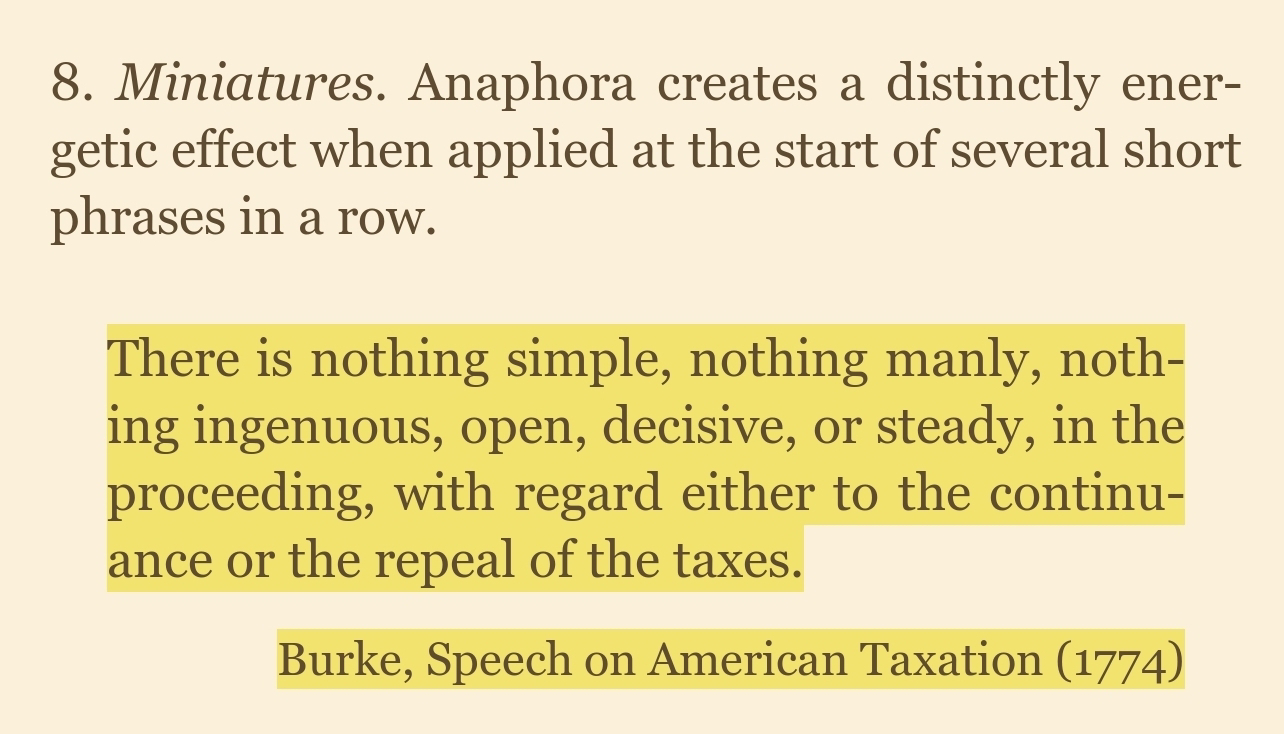210227 What I learned in my studies this morning
Today's Tao:
From The Daily Stoic:
“Of all the things that are, some are good, others bad, and yet others indifferent. The good are virtues and all that share in them; the bad are the vices and all that indulge them; the indifferent lie in between virtue and vice and include wealth, health , life, death, pleasure, and pain.”—Epictetus, Discourses, 2.19.12b–13
Many things are beyond our control. Some things are within our control. Of those things, some are important and some are unimportant.
I must learn to distinguish between the two and become indifferent to those things which, while under my control are not worth my mental energy, my attention, or my care.
The more I can place into the category of indifferents, the more I can focus on what matters.
(See anaphora below.)
From Eric Hoffer, XVII The Practical Men of Action
A Movement which will likely last is one which is lead by the succession of Men of Words -> Fanatics -> Practical Men of Action.
A Movement which gets to the Men of Words stage, but no farther, dies on the vine, never ripening to have any meaningful impact on the world.
A Movement which gets past the Men of Words stage and is subsequently lead by Fanatics, makes a difference, at least in the short term, but it will most likely be consumed by the foolish actions of Fanatics who refuse to realize that the time for violence is past and it must pivot in order to survive.
A Movement which grows beyond Men of Words and survives the Fanatics, evolving into a new system lead by Practical Men of Action, will be the longest lasting and most beneficial / destructive.
(The True Believer, XVI-113)
From Ward Farnsworth, Classical English Rhetoric, Chapter 1. Repetition of Words and Phrases:
2. Repetition at the Start: Anaphora
Technical terms: anaphora - repetition of the same words or phrases at the beginning of successive clauses or sentences.
Asyndeton - omission of a part (i.e. leaving out a conjunction in a series) in a repetitive pattern
Uses
Anaphora can build expectation, emotion, and action. It can offer power to an idea or section. Overuse bores the reader or listener.
Patterns and Examples
— Repetition of the subject with changes in the verb
— Repetition of the subject with different complements
— Repetition of the subject and verb with different objects
— Changes in modifying language
— Elaboration of a single word
— Repeating descriptive language at the start
— Long stems
— Miniatures
— Anaphora within anaphora
— Regularity and relief
Conclusion
Learning to use repetition properly, and, almost more importantly when to interrupt the pattern, can offer many benefits.
(pp. 3-15)











Comments
Post a Comment
Please note that I am not saying I agree or disagree with what is posted above. It is merely a recording of what I read this morning.